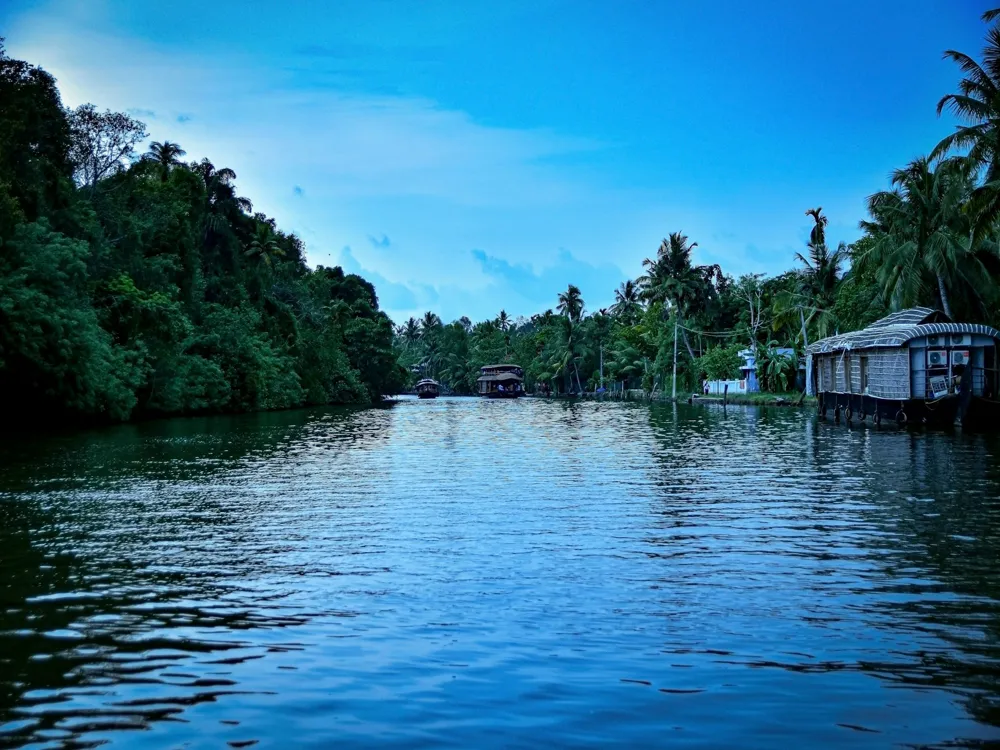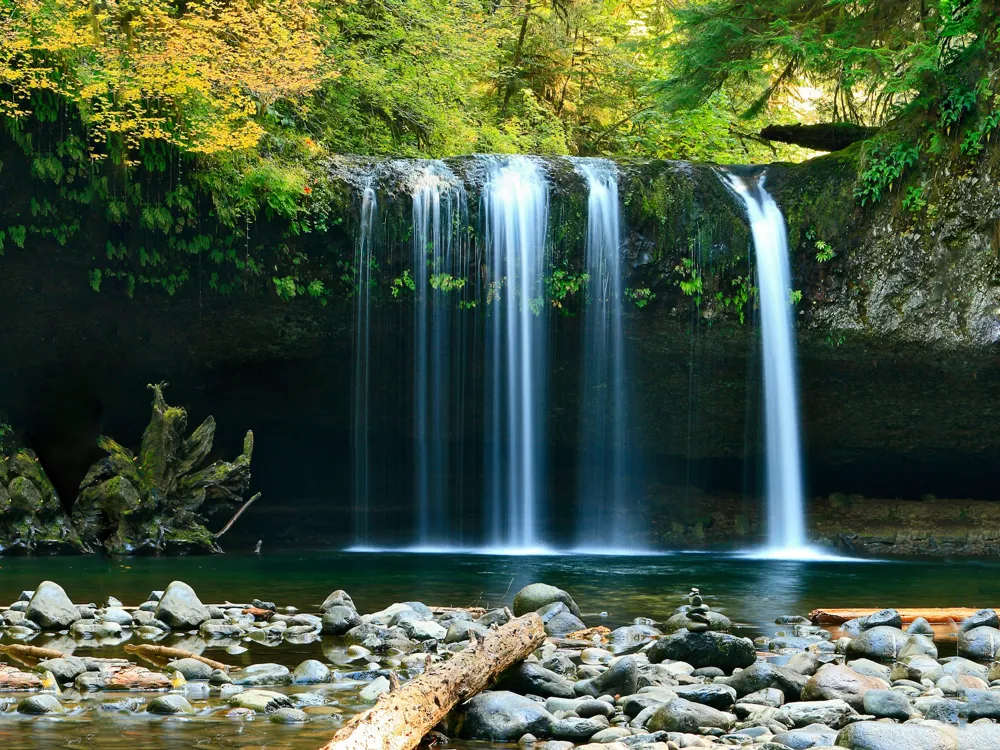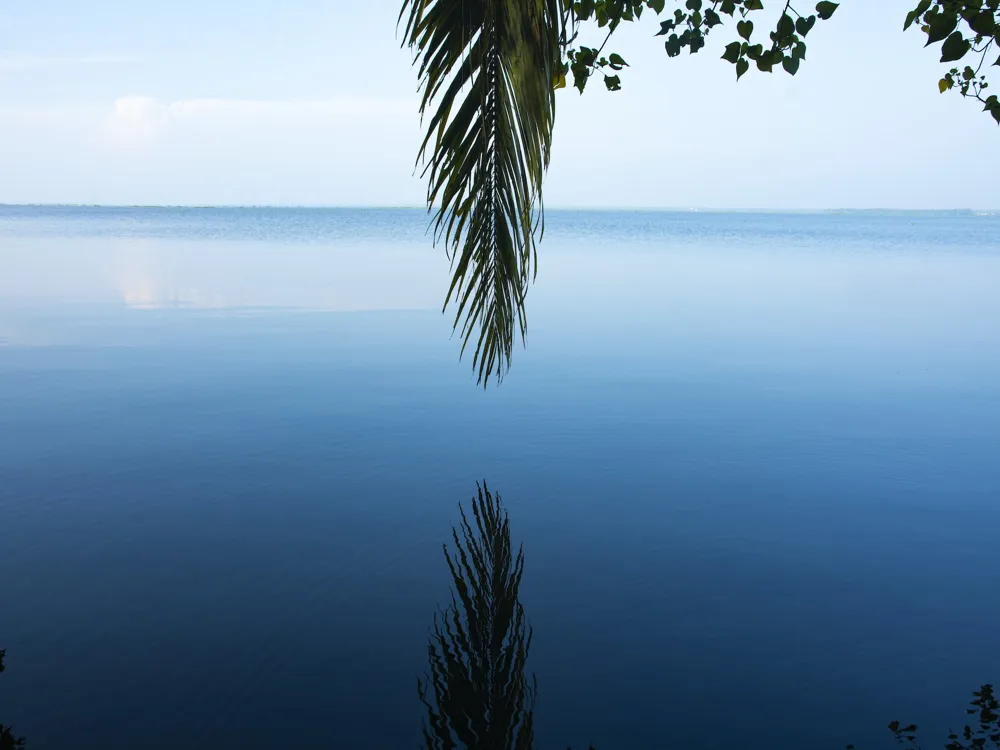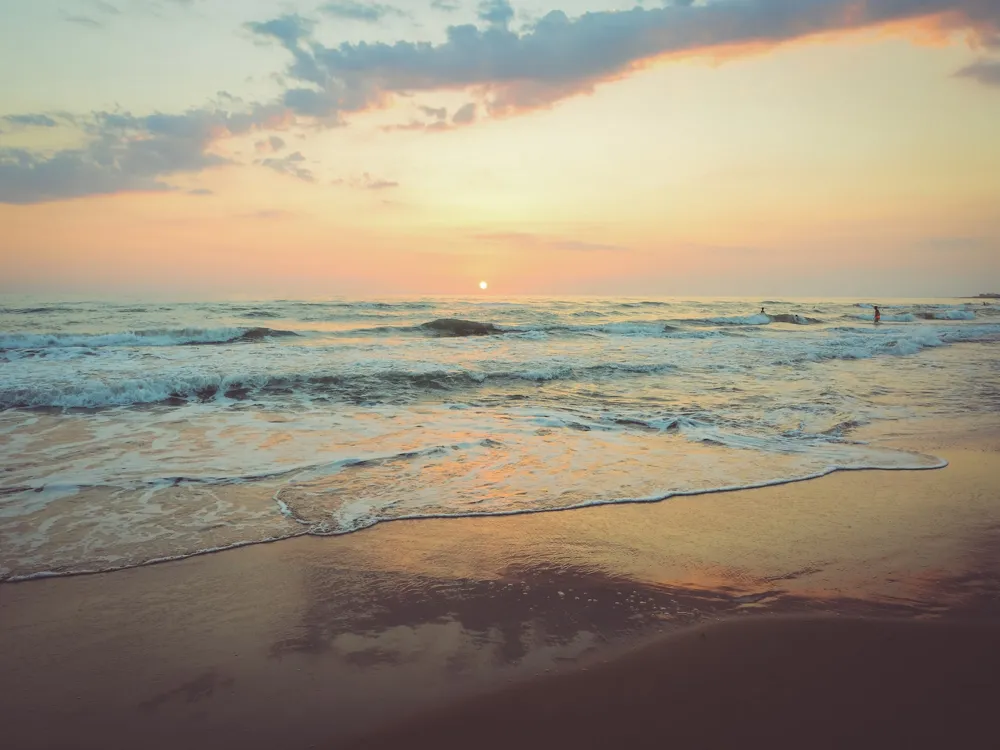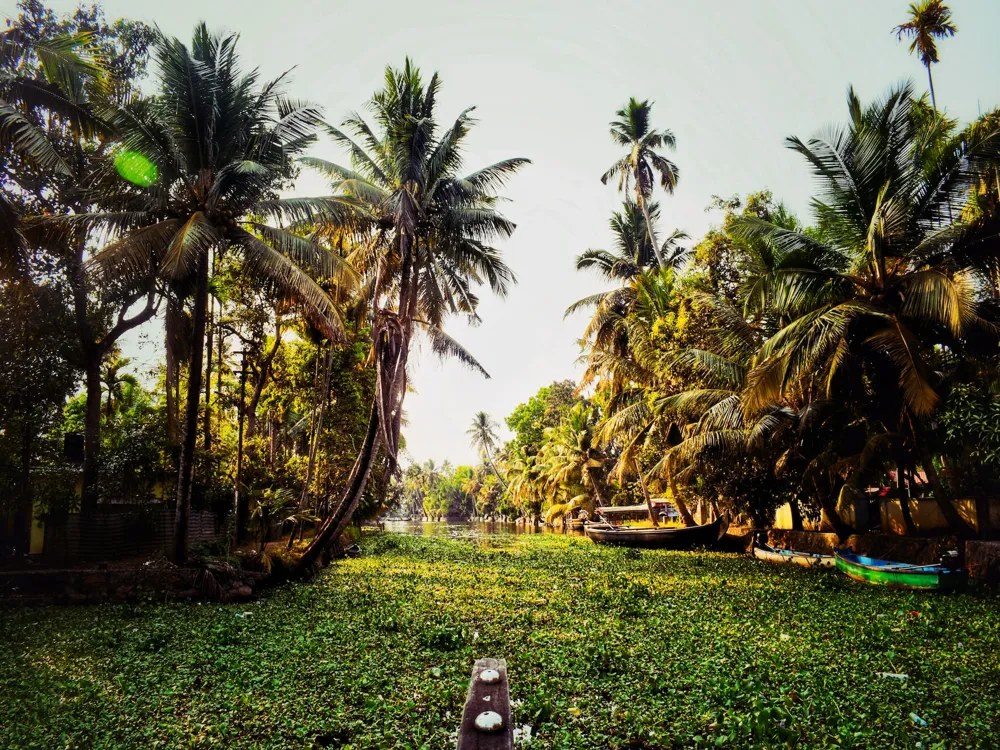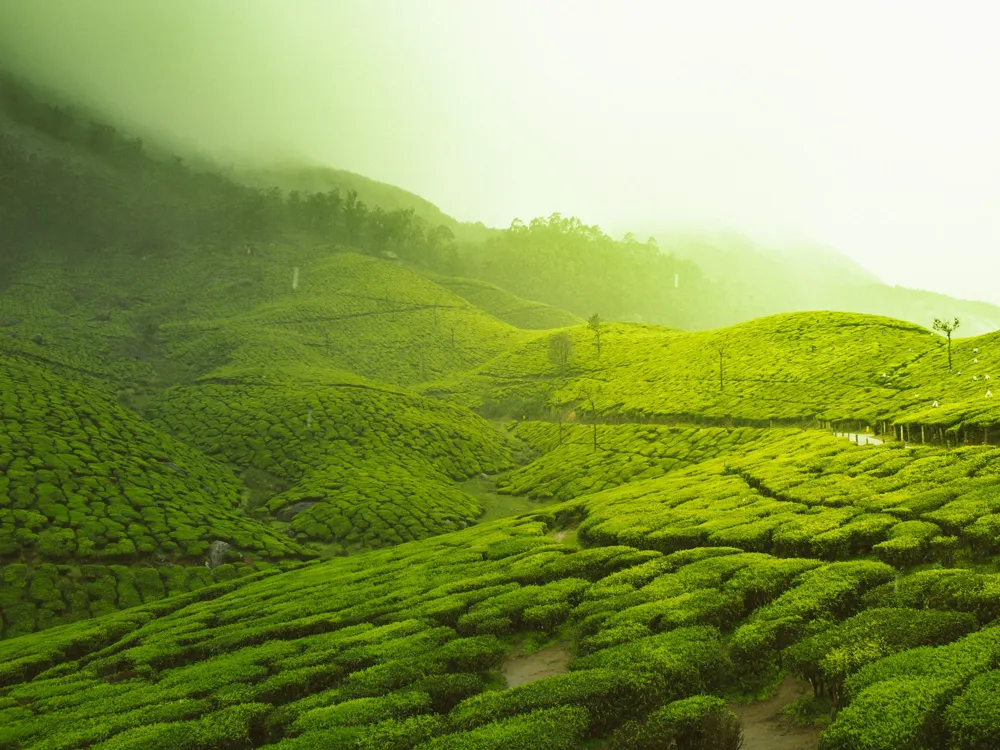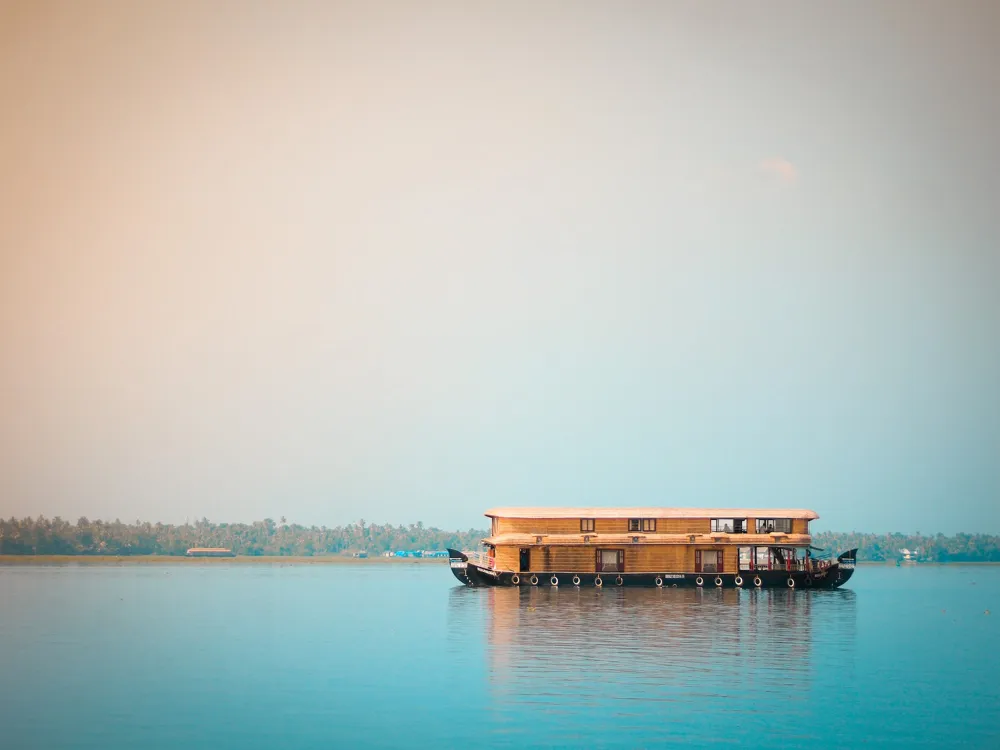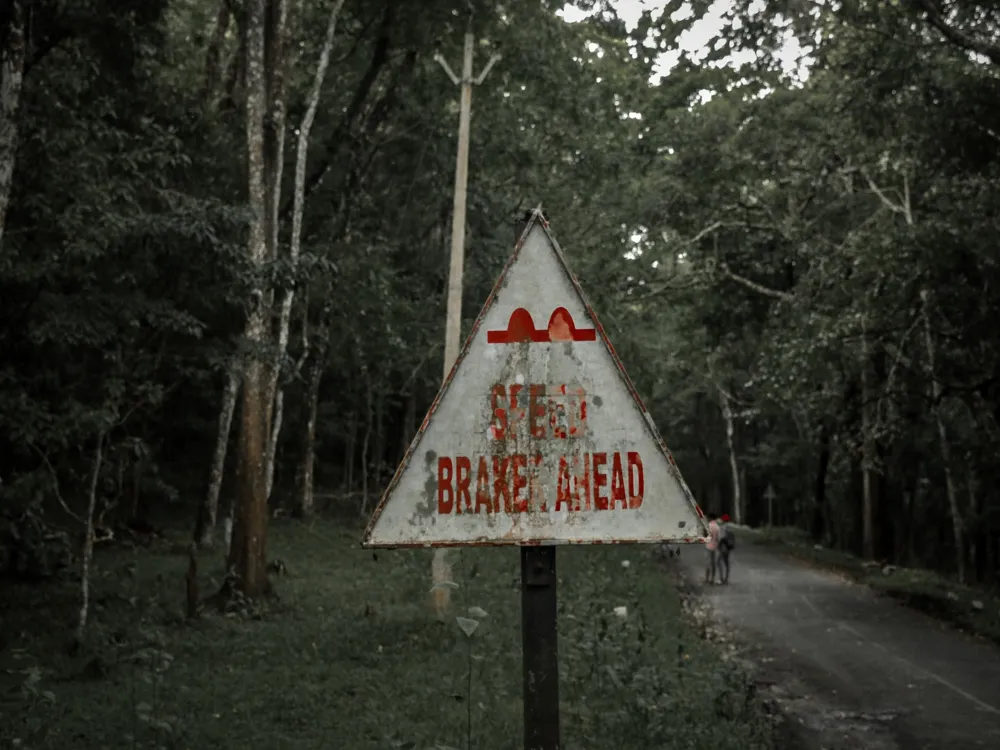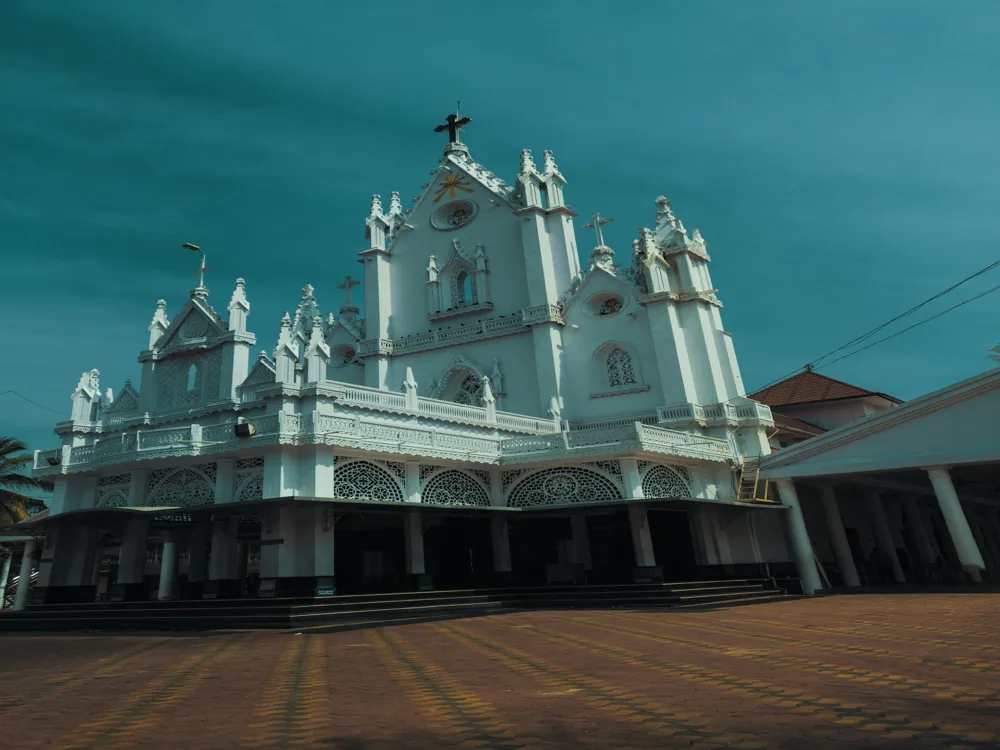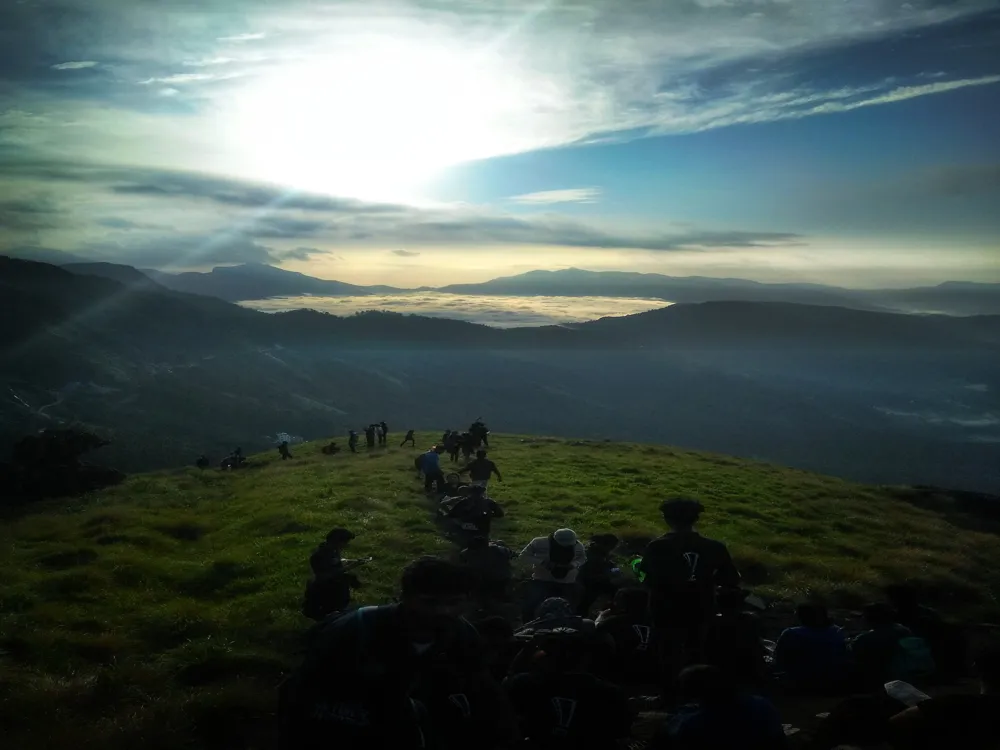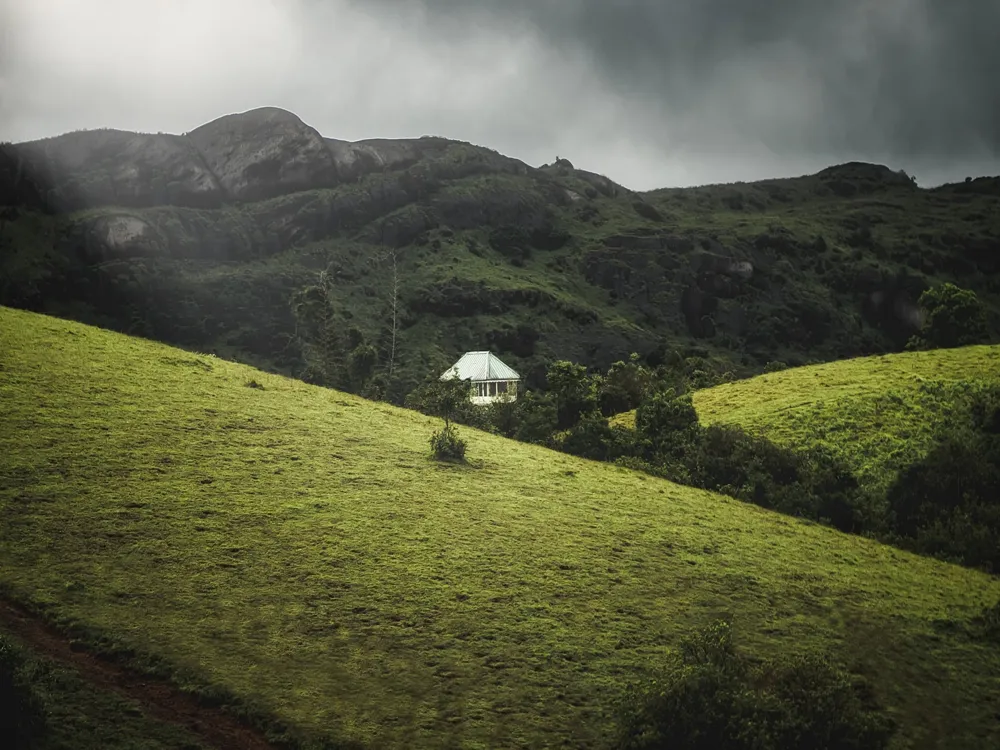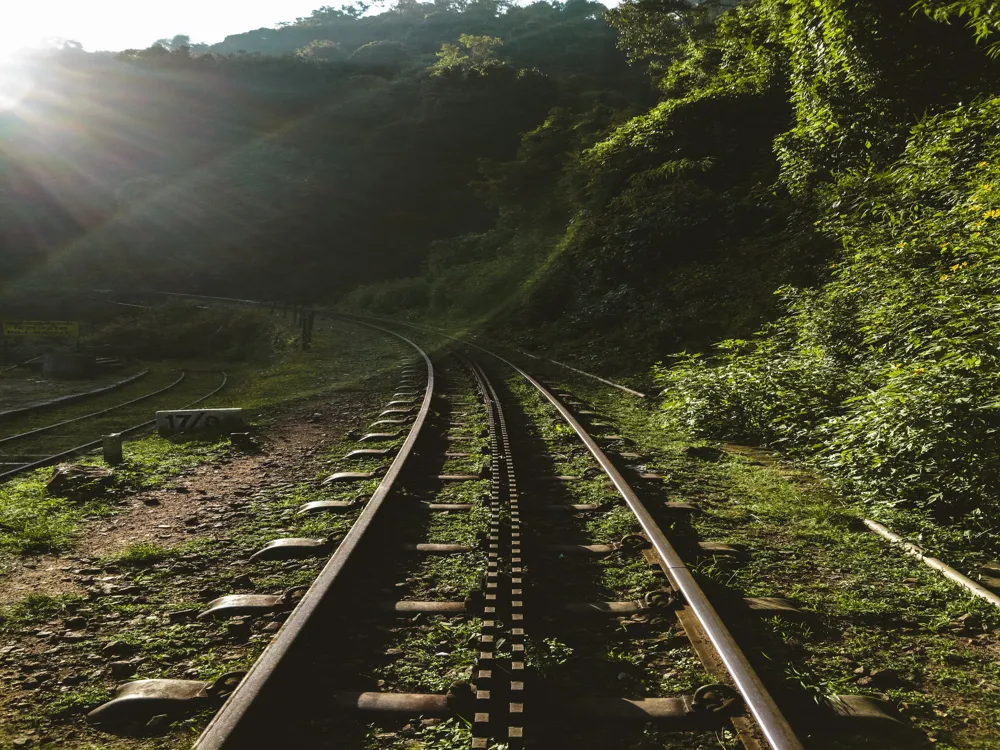Nestled in the serene backwaters of Kerala, the Juma Masjid of Kumarakom is a magnificent example of Islamic architecture and cultural heritage. This mosque, located in the picturesque village of Kumarakom, has been a center of spiritual solace and communal harmony for centuries. The Juma Masjid stands not only as a place of worship but also as a symbol of the rich cultural tapestry of Kerala. Visitors are welcomed by its tranquil surroundings, offering a peaceful retreat from the hustle and bustle of daily life. The mosque's history is intertwined with the local community, reflecting the harmonious blend of different cultures and traditions that Kerala is known for. The Juma Masjid of Kumarakom is an architectural marvel, showcasing the traditional Kerala style infused with Islamic architectural elements. The mosque's design is a testament to the skilled artisans and their mastery of woodwork and craftsmanship. The structure is predominantly made of wood, with intricately carved ceilings, pillars, and arches that depict Islamic art and motifs. The blending of the local Kerala architectural style with Islamic influences creates a unique and awe-inspiring sight. The masjid's layout follows the conventional plan of Islamic mosques, yet it integrates local elements like the steeply pitched roofs, similar to the traditional homes of Kerala. This integration not only enhances the mosque's aesthetic appeal but also symbolizes the fusion of different cultural influences in the region. The mosque's prayer hall is spacious, with an open, airy feel, thanks to the large windows that allow natural light to flood the interior. This creates a serene and contemplative atmosphere, ideal for prayer and reflection. The interior of Juma Masjid is a reflection of simplicity and elegance. The mosque's inner sanctum is adorned with beautiful carvings and calligraphy, showcasing verses from the Quran. The mihrab, indicating the direction of Mecca, is elegantly designed and forms the focal point of the prayer hall. The wooden mimbar (pulpit) is another striking feature, with its detailed carvings and traditional design. The use of natural materials like wood and stone in the mosque's construction not only adds to its beauty but also keeps the interiors cool, a thoughtful adaptation to the region's tropical climate. The exterior of the Juma Masjid is equally impressive. The mosque is surrounded by lush greenery, with a large pond nearby that adds to its serene ambiance. The façade of the mosque is simple yet elegant, with minimalistic design elements that blend seamlessly with the natural surroundings. The use of natural colors and materials in the exterior construction helps the mosque to harmonize with the environment, making it a part of the landscape rather than an imposition on it. The Juma Masjid holds significant importance in the Islamic culture of Kerala. It serves as a key religious site for the Muslim community in the region, hosting regular prayers, religious gatherings, and festivals. The mosque is especially vibrant during the holy month of Ramadan and on Eid, with special prayers and community feasts. The Juma Masjid is not just a place of worship; it's a center for cultural exchange and understanding, promoting peace and harmony among different communities. Visitors are advised to dress modestly, covering shoulders and knees, as a sign of respect for the religious site. Traditional Indian attire like a salwar kameez or saree for women, and kurta-pajama for men, is ideal. Photography is allowed, but it is respectful to avoid taking pictures during prayer times. Always ask for permission before photographing individuals. Maintain a quiet and respectful demeanor inside the mosque. Switch off mobile phones or keep them on silent mode. Avoid eating, drinking, or smoking within the mosque premises. Be aware of the prayer times, as the mosque will be primarily occupied by worshippers during these periods. Non-Muslim visitors are generally welcomed outside of prayer times. Understand and respect the local customs and traditions. Engaging with locals and learning about the mosque's history and significance can enrich your visit. Juma Masjid of Kumarakom is well-connected and easily accessible. The nearest airport is the Cochin International Airport, from where you can hire a taxi or take a bus to Kumarakom. The village is also well-served by a network of roads, making it convenient to reach by car or bus from various parts of Kerala. For those preferring a scenic route, boat services are available in the backwaters, offering a unique and serene approach to Kumarakom. Read More:Overview of Juma Masjid of Kumarakom, Kerala
Architecture of Juma Masjid
Interior Design
Exterior Features
Significance in Islamic Culture
Tips When Visiting Juma Masjid
Dress Code
Photography Guidelines
Conduct Inside the Mosque
Prayer Times
Cultural Sensitivity
How To Reach Juma Masjid
Juma Masjid
Kumarakom
Kerala
₹ 8,500 onwards
View kumarakom Packages
Kumarakom Travel Packages
View All Packages For Kumarakom
Top Hotel Collections for Kumarakom

Private Pool

Luxury Hotels

5-Star Hotels

Pet Friendly
Top Hotels Near Kumarakom
Other Top Ranking Places In Kumarakom
View All Places To Visit In kumarakom
View kumarakom Packages
Kumarakom Travel Packages
View All Packages For Kumarakom
Top Hotel Collections for Kumarakom

Private Pool

Luxury Hotels

5-Star Hotels

Pet Friendly


